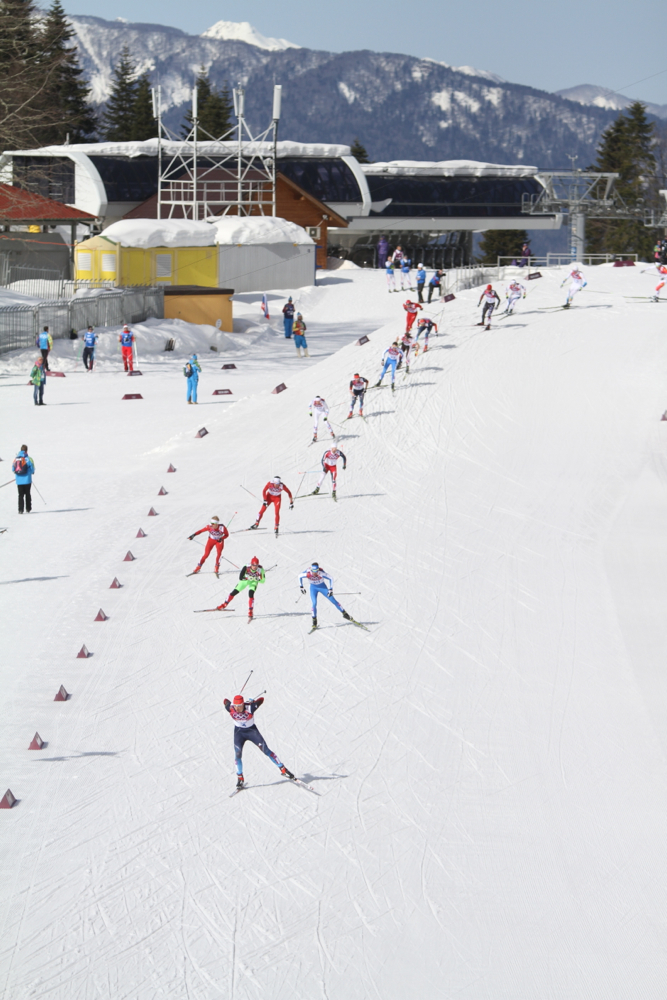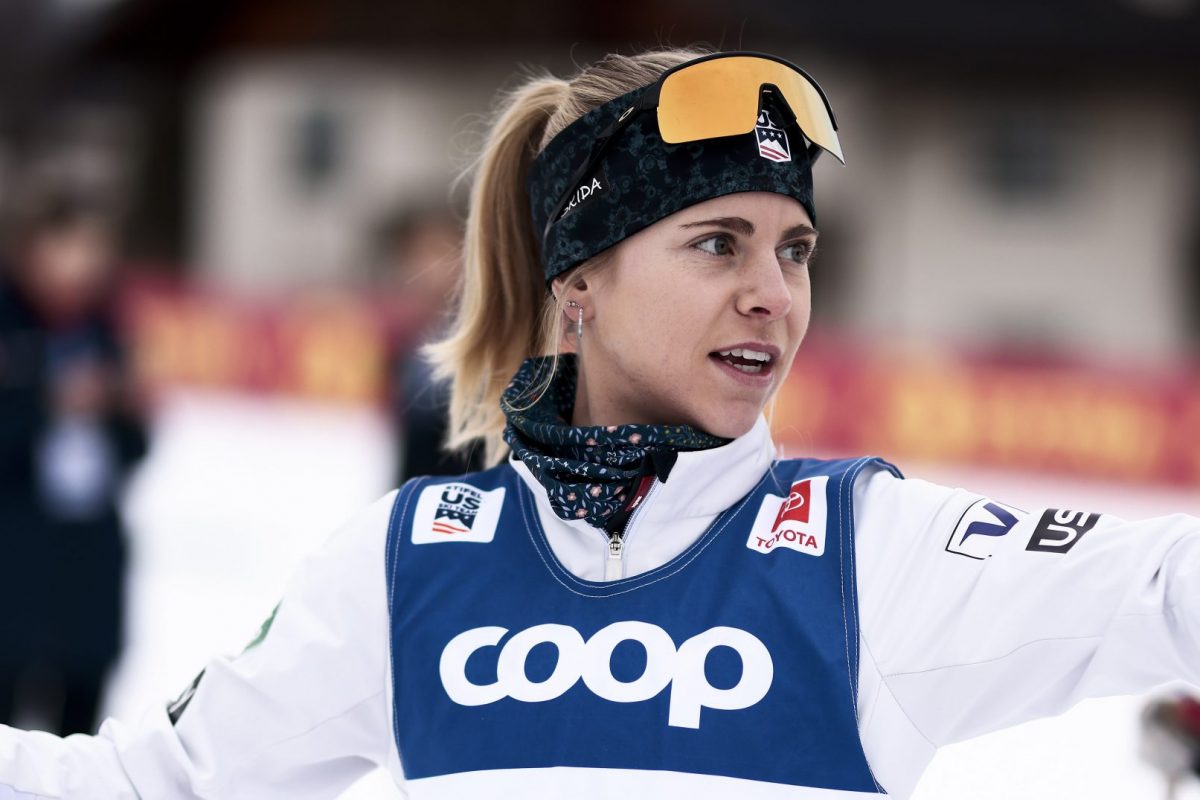
On Monday, Russian cross-country skiers appeared before the Court of Arbitration for Sport (CAS) to protest their provisional suspension by the International Ski Federation (FIS).
“The hearings were held for five hours, during which we actively discussed all the legal and factual subtleties,” Christoph Wieschemann – the lawyer for Alexander Legkov and Evgeny Belov – told Russia’s TASS news agency, according to a translation. “I believe in the independence and impartiality of the judges. I’m not speaking of CAS as an institution, rather of the judges, who I consider to be highly qualified and fair. They asked many questions of me, and of the representative of FIS, and I believe that our position was more convincing. Therefore I believe in our success.”
Timeline and What’s Happened So Far
In late December, 2016, FIS suspended Legkov, Belov, Maxim Vylegzhanin, Alexei Petukhov, Julia Ivanova, and Evgenia Shapovalova. The suspensions were the result of details in the McLaren report, which indicated that the athletes’ anti-doping samples had been tampered with during the 2014 Olympics; based on this evidence, the International Olympic Committee (IOC) directed FIS to take action.
These manipulated sample vials were among 99 samples belonging to Russian skiers which were either identified by forensic experts as being tampered with, or which were discussed as being positive for prohibited substances in emails or other documents obtained by the investigators. FIS has yet to suspend any athletes for violations revealed in the McLaren report at non-Olympic events.
The provisional suspensions were just that – a temporary suspension while the cases were further investigated and until FIS convened a Doping Panel. The skiers immediately appealed to FIS, asking that they be allowed to continue competing while the case was investigated. A few days later, that appeal failed.
Next, the skiers appealed being suspended at all. On January 25, the FIS Doping Panel rejected the appeal and the skiers remained suspended.
The only avenue left for the skiers was to finally appeal their suspensions to CAS, a process which usually takes months. Ivanova has not appealed; the other five have (Vylegzhanin, Petukhov, and Shapovalova are represented by different lawyers than Belov and Vylegzhanin). As the arbitration drew on, they made an emergency appeal to CAS to try to gain entry to 2017 World Championships. Like when they initially appealed to FIS, they tried to argue that the evidence against them was weak and that they should be allowed to continue competing while the case was adjudicated. That appeal also failed.
On Monday, the Russians finally had their real hearing at CAS, an important step in the progress of the case. A decision can’t be expected for at least another month.
In an Instagram post, Petukhov reported that Belov stayed at CAS for a remarkable 11 hours – through his own hearing with Legkov, and then also to listen in on the hearings for Petukhov, Vylegzhanin, and Shapovalova. “Our lawyers have worked perfectly,” he wrote, according to a translation.
The Arguments
The athletes maintain their innocence, and also question the process of the FIS/IOC investigation: in the months since December, their provisional suspensions have neither been lifted nor turned into a more final decision. It’s hard to tell whether there is progress on the cases.
They also question whether evidence of tampering is enough to result in a suspension. The samples did not test positive for any prohibited substances.
Investigations by the New York Times and other news outlets, besides the McLaren report, suggest that this is because the tampering was done to switch out “dirty” samples for clean ones – which would of course result in no positive tests. Although so-called “non-analytical positives”, where doping has been proven without a positive drug test, are becoming more and more common, the skiers assert that even if someone else had tampered with their samples it was not their fault and does not mean that they were in fact doping.
“We asked CAS representatives to issue the solution as soon as possible, even without a detailed explanation,” Christoph Wieschemann – the lawyer for Legkov and Belov – said in an interview with Russia’s Sport Express. “I hope this will speed up the process. During the hearings, we also emphasize that it is extremely important for athletes to get a decision as soon as possible.”
Wieschemann also pointed out that the evidence in Richard McLaren’s investigation on behalf of WADA – called the McLaren report – was never intended to single out individual athletes for suspension, rather “to collect evidence of the existence of a doping system within the country.” As such, Wieschemann insists that the evidence shouldn’t be used to suspend his clients.
McLaren has stated publicly that he was not tasked with assessing the guilt or innocence of individual athletes.
“Look at what is there and what the data is and make a decision on that basis and don’t turn it into what it isn’t – a doping results-management investigation of specific athletes,” McLaren said in an interview with The Guardian after the first part of his report dropped. “It never was that.”
But unlike Wieschemann, he doesn’t believe his evidence is lacking in any regard, just that this wasn’t necessarily its intended purpose. McLaren he insists that everything he documented was reliable.
“I wouldn’t put anything in the report that I didn’t have evidence of and wouldn’t meet the criminal standard in any court around the world,” he said in the same interview. “Nothing in there is an allegation. I wouldn’t have put it in if it didn’t meet that standard. To say that is all allegations and not proven and there is no evidence … there is evidence and I have it secured.”
Wieschemann disagrees. In a press release posted on his website regarding the skiers’ provisional suspensions, he asserts that the information in the McLaren report cannot be verified and is in fact wrong.
Then there’s this: “Furthermore, two samples have been taken from Alexander LEGKOV in Sochi which have been tested negative and for which no forensic proof on marks and scratches is available. In conclusion, that means – according to present knowledge – LEGKOV has been tested negative twice in Sochi without any indication of tampering.”
However, one of Legkov’s samples from Sochi did show such indications of tampering.
Furthermore, the report included emails between sports officials discussing how they “rescued” Legkov from a positive test for budesonide, a banned glucocorticosteroid, at national championships later that season.
Wieschemann counters that such evidence is irrelevant, because it did not occur at the Olympics and the current arbitration proceedings are based on suspensions initiated from the IOC recommendations.
“I think we are all positive,” Wieschemann said of the team’s attitude going into the CAS hearing. “The main thing is that we believe each other, and I’m absolutely sure that the guys were sincere in their conversations with me. They never used dope, including at the Olympic Games in Sochi… we can say with confidence that on that day, Alexander [Legkov] was clean. All the facts mentioned in McLaren’s report are beyond the control of the athlete.”
Chelsea Little
Chelsea Little is FasterSkier's Editor-At-Large. A former racer at Ford Sayre, Dartmouth College and the Craftsbury Green Racing Project, she is a PhD candidate in aquatic ecology in the @Altermatt_lab at Eawag, the Swiss Federal Institute of Aquatic Science and Technology in Zurich, Switzerland. You can follow her on twitter @ChelskiLittle.



